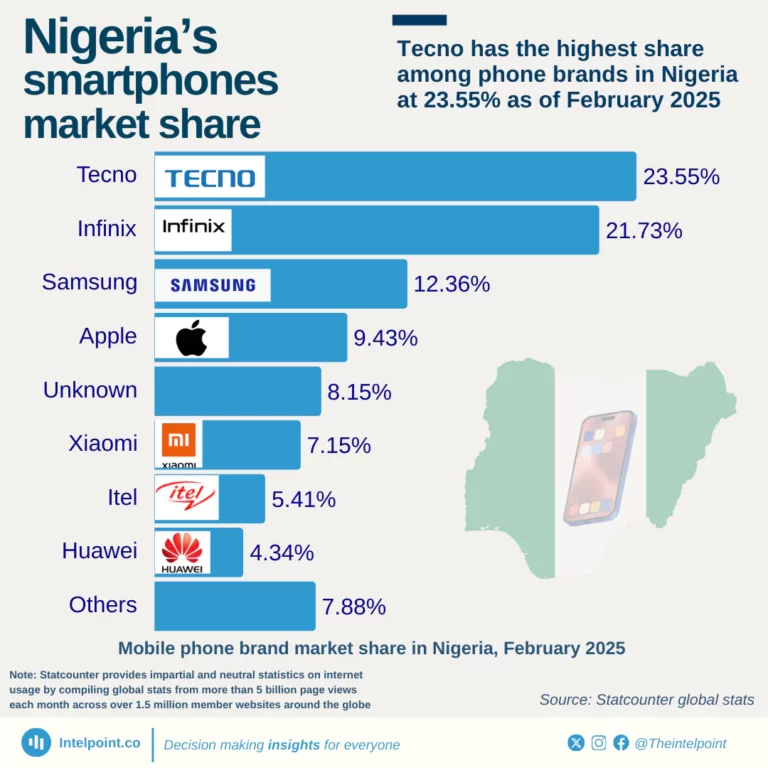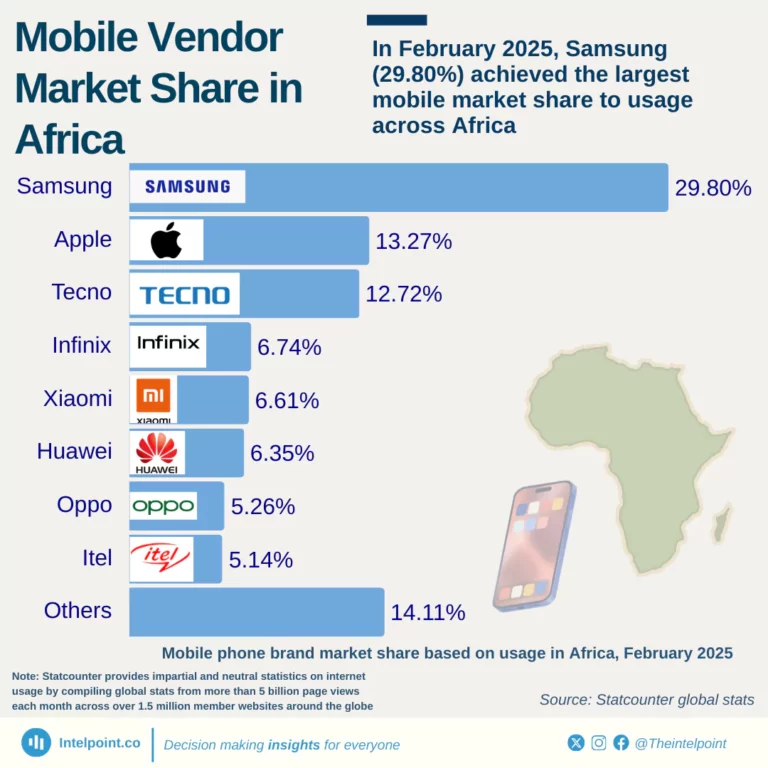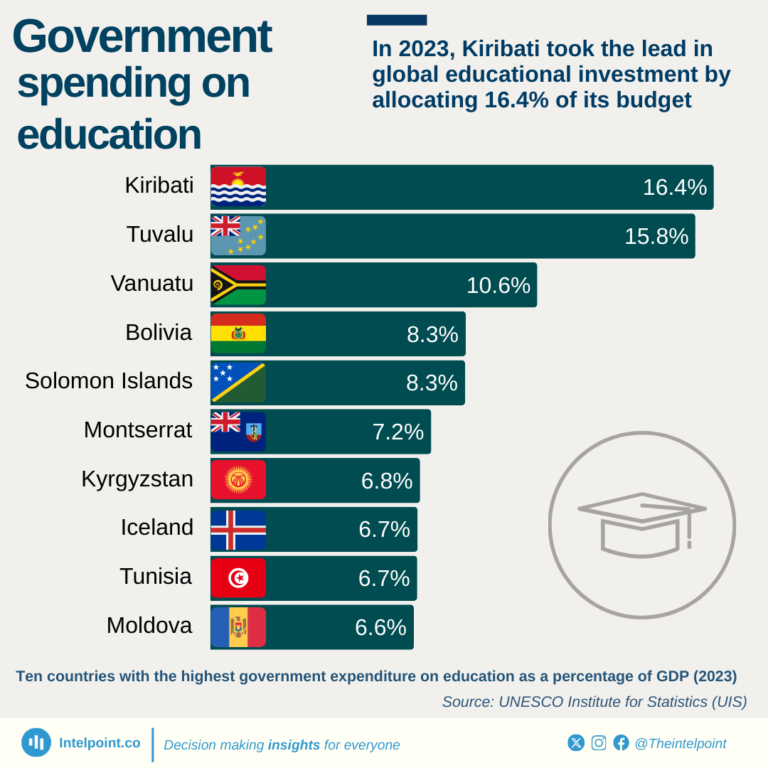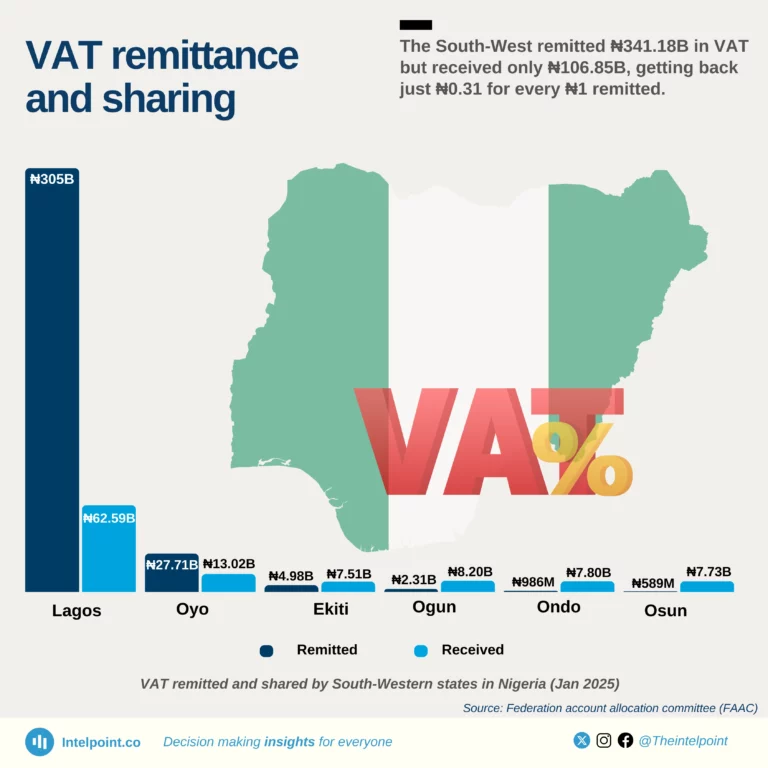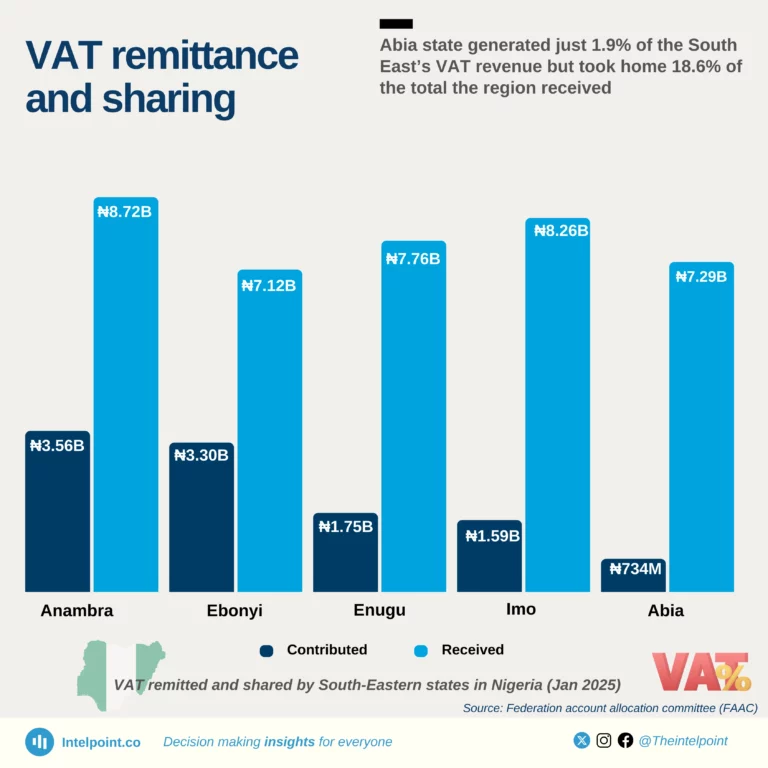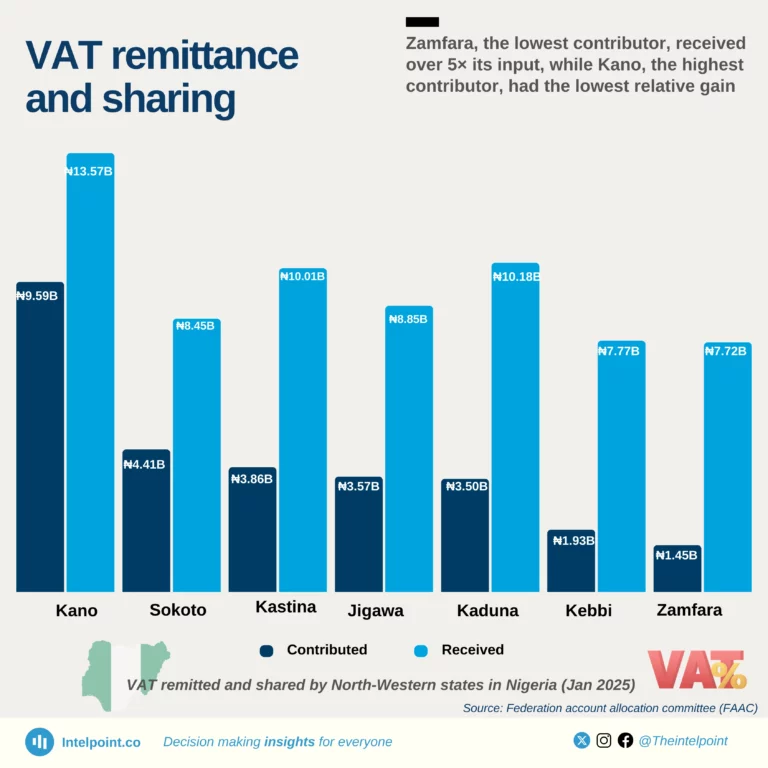The distribution of doctors across Nigeria shows disparities, with regional inequities in healthcare professionals. The North East, with only 2,420 doctors, has the lowest number of doctors among all geopolitical zones. This is less than half of the North West's total and significantly lags behind the South West, which leads with 13,624 doctors. The gender gap is also evident, as there are more male doctors across all regions.
Lagos State stands out with 7,385 doctors, far surpassing the next in line, the Federal Capital Territory (FCT) Abuja. Meanwhile, five of the six states in the North East rank among the bottom ten states.
N.B. Unspecified bar represents doctors with unverifiable location identities.
